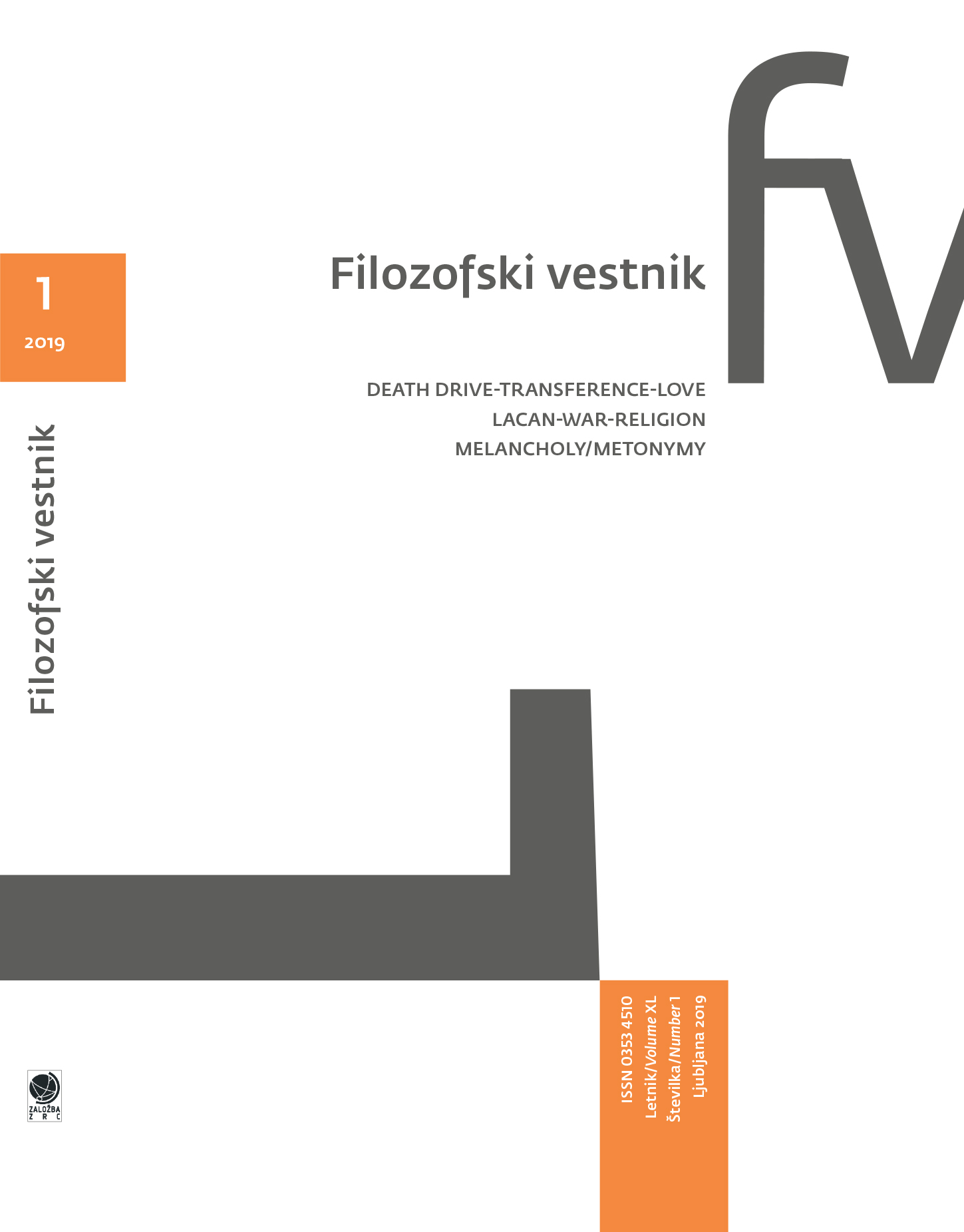On Lacan’s The Triumph of Religion and Related Matters
Keywords:
Lacan, psychoanalysis, religion, negativity, atheism, capitalism, Benjamin, 24/7, narcocapitalismAbstract
The points of departure of the article are theses from Lacan’s The Triumph of Religion. The text attempts to provide elements for an understanding thereof by relating it to Lacan’s own work as well as some other contexts. Although Lacan’s position can be elucidated by different conceptual pairs (psychoanalysis/religion; symptom/world; “what does not go well”/”what goes well”; psychoanalysis /religion) and related to contemporary anxiety and discontent with scientific and technological advancement/progress, the text first points out the context of the word “triumph” in Lacan. It pertains to the Imaginary in Lacan’s sense, which is also related to Kojève’s Hegel and to “the end of the history” (Kojève). This particular “triumph of religion” is exposed by a rather unknown Kojève’s text from 1946, which defines the need for a Latin Empire, a project that Kojève was engaded in and which is now known as EU. The contemporary European relation to science and critical theory, the demand for their operationability, the omnipresence of evaluation procedures, and the Accoyer affair from 2003 in relation to psychoanalysis put Lacan’s claim as to the “triumph of religion” in a rather different context. The second part of the text points out some of Lacan’s key claims about science and religion, his thesis on “a true religion”, Christianity and atheism. The final part of the text presents yet another context for The Triumph and puts the latter in the context of Benjamin’s claim about capitalism as religion defined by its tendency to supress sleep and rest (Crary). This can be achieved only artificially and with the help of pharmacology, drugs and of what Laurent de Sutter names “narcocapitalism”.
Downloads
Downloads
Published
How to Cite
Issue
Section
License
Authors guarantee that the work is their own original creation and does not infringe any statutory or common-law copyright or any proprietary right of any third party. In case of claims by third parties, authors commit their self to defend the interests of the publisher, and shall cover any potential costs.
More in: Submission chapter





